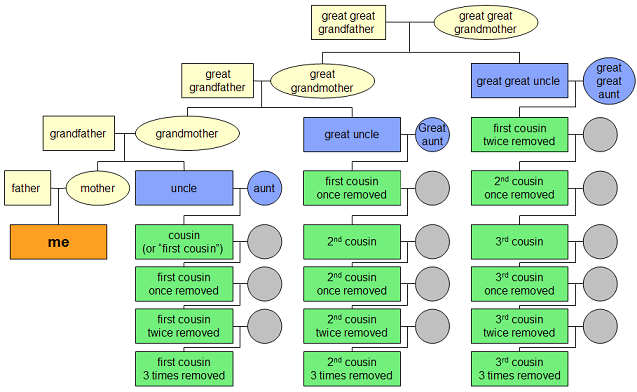So I just saw the question: How can you recognize "uncle" is father's brother or mother's brother? (Is there any "default option"? ), and I looked at the Wikipedia article for uncle and the definition at Google, and it seems that the word is limited to siblings of parents or their husbands. In Spanish, the translation, "tío," also covers cousins and uncles of parents, so it's a recursive relationship that stretches infinitely far up the ancestry chain. That means that when you have a family reunion based on a common ancestor, everyone has a personal relationship with everyone.
Is that not the case in English? What do you call the husband of the daughter of the sister of your grandmother, or the son of the brother of your great-grandfather?
Answer
Uncle and Aunt are only used for siblings of direct ancestors. So my mother's sister is my aunt. My grandmother's sister is my great aunt. Their children and spouses are my cousins of one degree or another.
Here's a chart showing the different types of cousins, though in common use people really just use "cousin" as a generic catch all and I doubt the average person would know this chart.

You can specify uncle and aunt further by stating which side of the family they belong to - male/female. So your father's sister would be your paternal aunt and your mother's brother would be your maternal uncle. Similar to how you have maternal and paternal grandparents.
No comments:
Post a Comment